Framing the Future Presenters
Christine Thompson, Professor of Art Education, Penn State University

Christine Marmé Thompson is a professor of Art Education in the School of Visual Arts at The Pennsylvania State University. Professor Thompson earned her Ph.D. in art education at The University of Iowa in 1985, and taught at the University of Illinois at Urbana-Champaign from 1985-2001. Her research focuses on issues of children's culture and art learning, with an emphasis on the dialogues that surround drawing events in early childhood settings. Professor Thompson's writings have appeared in national and international journals in art and early childhood education, and in numerous edited collections, and she has presented keynote addresses on research, art education, and childhood studies in Taiwan, Korea, Finland, Portugal and the United States. She is co-editor, with Liora Bresler, of The Arts in Children's Lives: Context, Culture, and Curriculum (2002), published by Kluwer Academic Press, and editor of The Visual Arts and Early Childhood Learning (1995), published by the National Art Education Association (NAEA). She currently serves as co-editor of The International Journal of Education and the Arts. Dr. Thompson was president of the Seminar for Research in Art Education from 2003-2005, and Early Childhood Art Educators from 2008-2010. A member of the Council for Policy Studies in Art Education, Professor Thompson received the Mary Rouse Award (1995) and the June King Mc Fee Award (2005) from the Women's Caucus of NAEA, and the Marilyn Zurmuehlen Award (1994) from the Seminar for Research in Art Education.
Contact information: Christine Marmé Thompson, Professor, School of Visual Arts, The Pennsylvania State University, 30E Borland Building , University Park, PA 16802. (814) 865-6570. Cmt15@psu.edu
Session Title: Early Art Education: Choices and Challenges
This workshop focuses on ways that teachers can learn from young children's self-initiated art activities and use this learning to propose project work, undertaken by teachers and children together.

Diane Jaquith, Elementary Educator
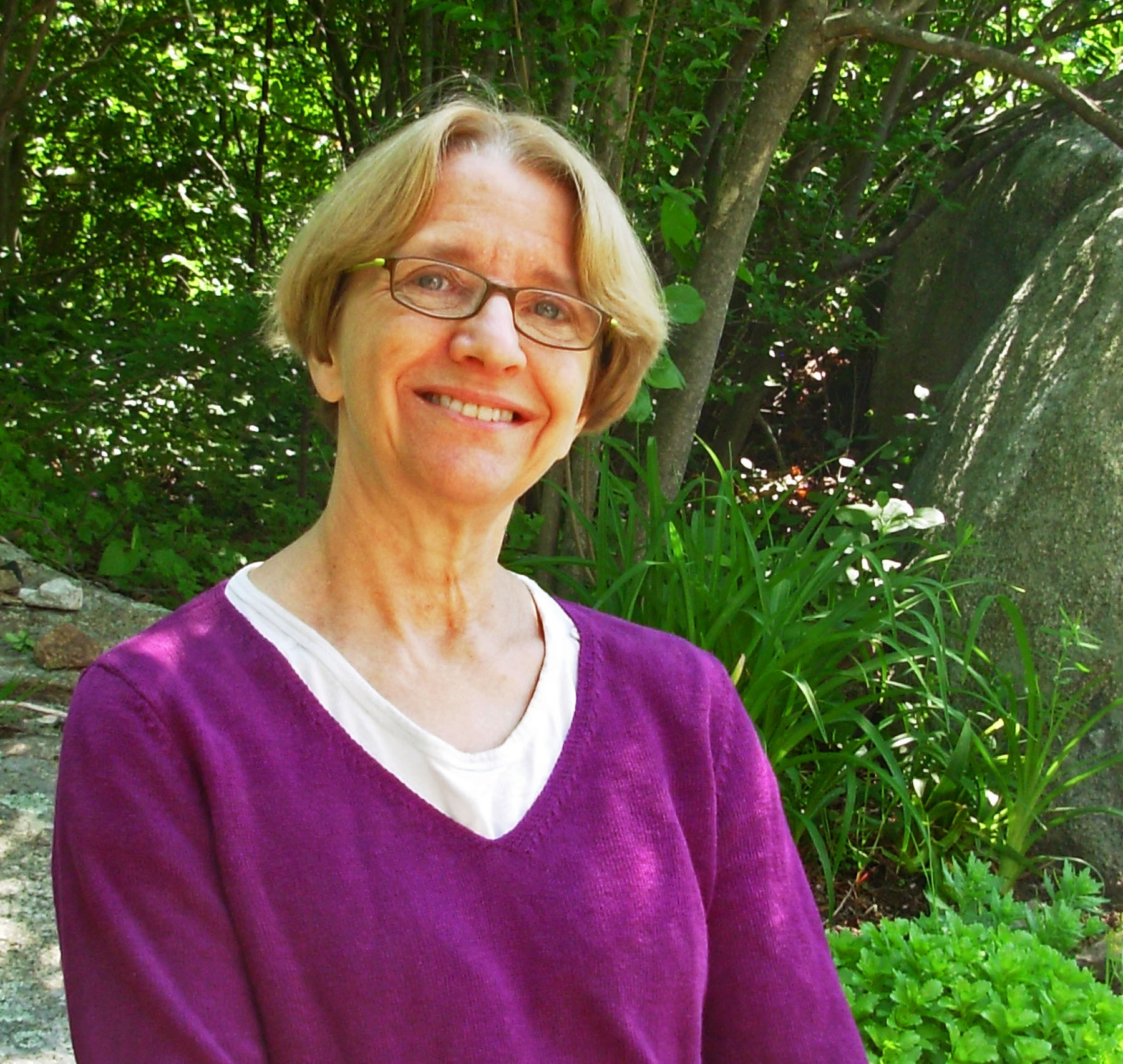
teachingforartisticbehavior.org
Diane is a K-5 art teacher in Newton, MA and co-founder of Teaching for Artistic Behavior, Inc., a choice-based art education advocacy organization. She is co-author of Engaging Learners Through Artmaking: Choice-Based Art Education in the Classroom; and co-editor of the soon-to-be-released text, The Learner-Directed Classroom: Developing Creative Thinking Skills Through Art. Jaquith is a frequent speaker at regional and national conferences and serves on the Cross-Division Research Committee of the National Art Education Association.
Session Title: Learner - Directed Practice: Autonomy, Choice and Creativity Critical and creative thinking skills are activated when learners take ownership of their artmaking. In choice-based art classrooms, control shifts from teacher to students, who make decisions about art media, ideas, working style, and pace. This presentation will highlight instructional strategies and assessment practices that promote creative thinking through self-directed learning.

Dr. Karin Tollfeson-Hall, James Madison University
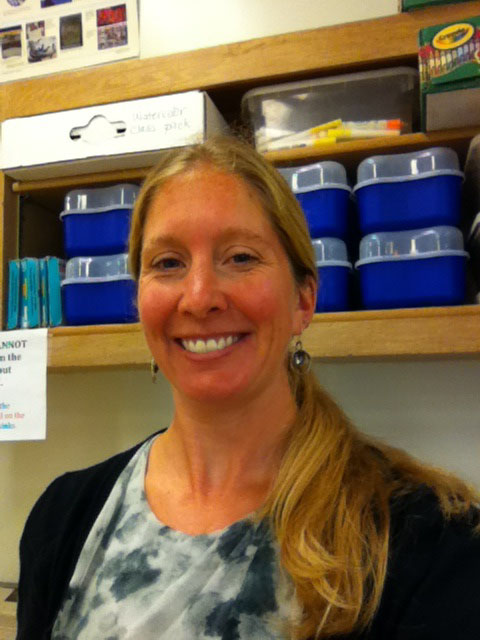
Dr. Karin Tollefson-Hall is Director of the Art Education Graduate Program and Assistant Professor of Art Education at James Madison University. In addition to teaching she is the faculty advisor to the Madison Chapter of the NAEA, the art education student organization at JMU, and the coordinator of the Art Education Peer Mentor Program. Currently Dr. Tollefson-Hall serves on the board of the Virginia Art Education Association as the Higher Education Division Director. Her research interests include school reform, art education in alternative settings, teaching styles, and non-traditional pedagogy.
Session Title: Intergenerational Service Learning in the Visual Arts This session highlights meaningful intergenerational-based service learning experiences that take place between art education students and the elderly within a practicum experience and extensions into elementary and secondary art classrooms.

Dr. Rahila Weed, Central Missouri State University
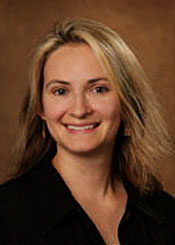
Dr. Rahila Weed is currently Associate Professor and Program Director of Art Education in the Department of Art & Design at the University of Central Missouri. She received her Ph.D. and her M.A. from the University of Iowa.
Dr. Weed teaches art education and foundational art history courses, as well as supervising student teachers.
Dr. Weed’s work is in the areas of art and autism, and she currently serves as a visual arts consultant for a regional autism center. She has one monograph, Art and Autism (2009),in print, and has published several articles on art and autism. In addition, she is an active member of the Missouri Art Education Association and the National Art Education Association, participating and presenting each year in state and national conferences and serving as an elected member of the state council. Previously, she taught elementary art.

Michele Comp, East Penn School District
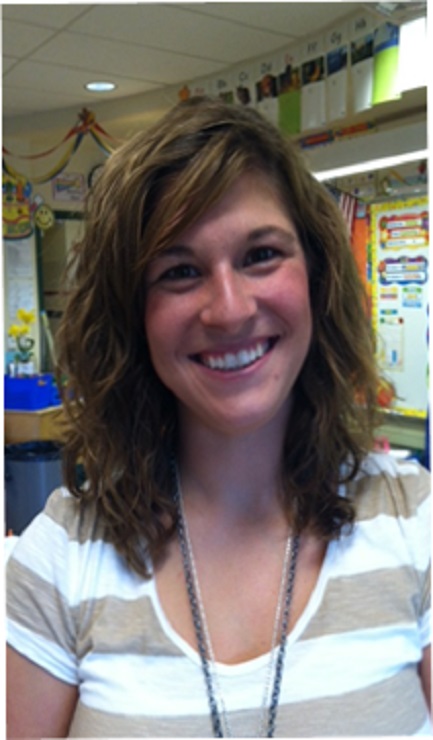
Michele is a fifth year, K-5, Elementary Art Teacher in the East Penn School District, Macungie, Pennsylvania and a Graduate Student at Kutztown University. While she doesn’t claim to be an expert on the topic, Michele enjoys creating and implementing lessons that cross disciplines though STEM (Science, Technology, Engineering, and Math) philosophy.
When she’s not teaching, Michele enjoys spending time boating and outdoors with her husband and two dogs. She also loves to run and craft.
To see some of the great things happening in Michele’s classroom visit her blog at http://oliveartdoyou.blogspot.com/
Session Title: STEM in Art and Design Education Planning a lesson that includes each component of STEM can seem like a daunting task. Learn ways to engage students with hands-on STEM projects that promote creative problem solving and collaboration.

Carrie Miller, Kutztown University Graduate Student
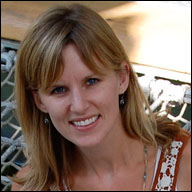
Carrie received her BFA in Illustration at the Rochester Institute of Technology and recently received her Post-Baccalaureate Certification in Art Education at Kutztown University. Before choosing to pursue her teaching certification, Carrie has spent 12 years working as a graphic designer. Carrie currently teaches art at the Gillingham Charter School in Schuylkill County, PA where she lives with her husband and two young boys.
Session Title: Design in Art Education
The design process is a structured approach to generate and develop ideas. How can art teachers use this process in their classroom. Teachers need to believe that they are designers. http://www.designthinkingforeducators.com

Norma Reichenbach-Nichols, Art Teacher, Hereford Elementary School

Norma Reichenbach-Nichols is an art teacher at Hereford Elementary School in the Upper Perkiomen School District. She has a BS and MS in Art Education from Kutztown University. Norma has been teaching art for fourteen years. She is an avid quilter and began the Hereford Quilters seven years ago. She has presented at the Pennsylvania State Art Education Conference in 2011 and will be sharing her service work at the National Art Education Association Conference in March of 2013.
Session Title: Hereford Quilters: Creating Teddy Bears for the Community The Hereford Quilters is an elementary and middle school after school quilting group. They have accomplished over 265 projects for community and social agencies. The participants for this workshop will create a teddy bear of their own to be given away.

Sandra Lee Wood, Retired Elementary Art Teacher, Boyertown Area School District
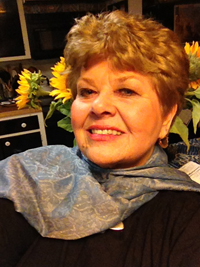
• BS and Masters in Art Education at Kutztown University
• Taught art 40 years for Boyertown Area School District
• [Doubling as Supervisor of Art for 15 years]
• Occasional adjunct professor at Kutztown University
• [Art for the Elementary, Early Field, Supervision of Student Teachers]
• Currently serving on PAEA board as Retired Chair
• [Served 17 years on PAEA Board heading various committees]
• PAEA Outstanding Art Educator 1990
• PAEA Outstanding Retired Art Educator 2009
• Currently active as an independent art education consultant.
Session Title: Your Brain on Art: Re-framing the Debate Let’s consider changing the message of why art is important for achieving a students’ full potential by taking a look at current brain research as it relates to participation in the arts.

Laurie E. Hicks, Professor of Art; Curator, Lord Hall Gallery, University of Maine

Professor Hicks’ research and publications focus on issues pertaining to feminism, cultural theory and environmental concerns in art education. Most recently her research has explored the concept of visual/material culture and play, and its contribution to our understanding of a socially responsible art education; contemporary body modification as a process of liberation; and the relationship of visual and material culture to our memory of place. She has written on utopian and dystopian notions of human experience and how they are represented in science fiction film; and on the cultural role of tourist images and artifacts, where she explored the process, content, mnemonic and narrative nature of tourist snapshots focusing on how everyday aesthetic and narrative structures unfold as we document and represent our tourist experiences through the taking of photographs, and on how such tourist images reflect more about the individual’s desire to tell a story, than about the particular narratives and landscapes of actual places.
Related to previous work on art education and the development of an environmental ethics of care, Professor Hicks is currently writing on issues of environmental justice and the role art education plays in developing a sense of environmental responsibility within the context of inextricable social concerns.
Professor Hicks' most recent artistic works, Icelandic Particulars, Particulars, Constructing Memory and Memories of China link her scholarly interest in our memory of place with photographic representations of experiences of place. As a member of ChinaVine.org’s research team, Professor Hicks travels to China to document traditional and emerging art forms and cultural practices in an effort to make information on China’s tangible and intangible culture accessible to an English language audience.
As a faculty member at the University of Maine, she teaches undergraduate and graduate courses in art education theory and practice, as well as courses on contemporary issues in art education, environmental design, art history, and museum education. In addition to her research and teaching efforts, Professor Hicks has served as the chair of the University of Maine's Department of Art, interim chair of Theatre and Dance and interim director of the University of Maine Museum of Art. She also served as President of the Women's Caucus of the National Art Education Association, is a member of the National Council on Policy Studies in Art Education and was the founding editor of the Journal of Gender Issues in Art Education. In 1999, Professor Hicks received the national Mary J. Rouse Award for Outstanding Contributions to Art Education. In 2011, Professor Hicks became the Senior Editor of Studies in Art Education.
Session Title: Play and the Inevitability of Change Over the course of my professional life in art education, I have often had to deal with both the threats and opportunities created by social and artistic changes. Change takes place at all levels of personal and professional experience and comes in many forms. Change has been a constant in art education, and it is something we must freely embrace in order to continue a meaningful and critical engagement with our discipline. The concept of change and the role of play in our ability to imagine the possibilities of transformation are central to this discussion and workshop. Considering the inevitability of change, we will look closely at how active participation in artistic practice and the design of culturally-relevant curricula will provide a path for grappling with what philosopher James Carse (1986) conceptualizes as "finite" and "infinite" games. Such an engagement may help us discern, embrace and articulate the inescapable and enviable unfolding of contemporary art education.

Presenters: Stacey Miller and David Deitz
Stacey L. Miller, Art Teacher Middletown Area Middle School

Stacey has been an art educator since 1993, receiving her BS in Art Education from Kutztown University and her Master of Humanities from Penn State University. Her nineteen years of experience have included kindergarten through twelfth grades for two school districts in central PA. She has also developed and taught art programs in three art associations, worked as a volunteer researcher for the State Museum in the fine art department and created programs for the Susquehanna Art Museum. Her current projects include teaching out of her own studio, painting for the Historical Society in Middletown, Pennsylvania, and participating in regional arts festivals. Last year she published an eighth grade lesson on the PDE SAS portal entitled Words and Images: The Connection between William Carlos Williams and Charles Demuth. She also helped write the PA State Standard 9.2 for Art Educators while participating in the Governor’s Institute for the Arts in 2002 and is currently involved in piloting a Student Learning Objective Model that she wrote for the PA Educator Effectiveness (teacher evaluation) initiative.
O. David Deitz

O. David Deitz holds a Bachelor’s Degree in music education from Mansfield State College, where he was selected to the Music Alumni Honor Roll and a Master’s Degree in Teaching and Curriculum from Penn State University, where he also completed ABD doctoral studies in Music Education. A 1999 finalist for Pennsylvania Teacher of the Year, Mr. Deitz retired as a teacher of choirs, music theory, guitar classes, and director of musicals at Central Dauphin High School in Harrisburg, Pennsylvania. He also served as an interim choral director at Bucknell University, professor of music at Penn State Harrisburg and as a student teaching supervisor for both Penn State and Mansfield Universities. A frequent clinician, adjudicator and guest conductor, Mr. Deitz served as President of the Pennsylvania Chapter of the American Choral Directors Association, as secondary level vocal music department chair for the Central Dauphin School District, and was featured in the Fall 2004 issue of Choral Director magazine. He currently serves as a Consultant to the Pennsylvania Department of Education’s Quality Review and Teacher Effectiveness teams. His wife Cathy sings with the Susquehanna Chorale while he is busy teaching piano, guitar, voice and brass instruments to their three grandchildren!
Session: Linking Student Learning in K-12 Art Education to PA Teacher Evaluation (K-12) This session will outline the upcoming changes to K-12 teacher evaluation, focusing on the input that art teachers can provide toward demonstrating teacher effectiveness based on authentic student learning and assessment in visual art. A model "Student Learning Objective" design will be showcased.

Brandy Noody, Art Educator, Fredonia Central School District

Brandy Noody, 2012 Minx M. Auerbach Award Recipient
I have been an art educator for the Fredonia Central School District, in Fredonia, New York, for thirteen years. During my tenure at Fredonia, I have had the opportunity to teach at various grade levels: K-2, 6-8, and 9-12. Each grade level holds a special place in my heart, however, I feel the most professionally fulfilled teaching at the high school level. For the last six years I have been honored to teach studio in art 1 and 2, painting, and ceramics at the high school level. Working with older students has allowed me to bring my own artistic expertise in painting and ceramics into my classroom. Sharing my personal artwork and artistic practice with my students is an integral part of my teaching.
In November of 2010, I was awarded National Board Certification in Early Adolescence through Young Adulthood Art. To achieve this advanced teaching credential, I completed 10 assessments that were reviewed by trained teachers in my certificate area. The assessments included four portfolio entries that featured my teaching practice and six constructed response exercises that assessed my content knowledge. The National Board Certification process was the most meaningful professional development I have had the opportunity to engage in. It taught me to deeply reflect on my teaching practice, which continues to strengthen it today.
As a lifelong student, I continue to look for ways to expand my knowledge. I was a participant in the 2011 Dinner Party Institute. What drew me to the Institute was the opportunity to see The Dinner Party in person and to meet Judy Chicago. What I left the Institute with was inspiration and a mission to share this important artwork with others.
I am the mother of two young boys, Hunter (7) and Colden (5). I enjoy sharing my love of art with my children and am hopeful that they will have access to quality art education programs throughout their school years. My husband, Brian, is a professional taxidermist. Even though he works with a non-traditional medium, he is an artist in his own right. In my free time, I enjoy making art of all kinds, gardening, cooking, and spending time with my family.
Session: Bringing Students to the Table: An Investigation of Judy Chicago's Dinner Party Learn about how I guide my high school students through an in-depth exploration of Judy Chicago's iconic, feminist artwork, The Dinner Party, which highlights 1,038 women in history. Covered in this session will be my approach to meaningful curriculum design, using The Dinner Party Curriculum Project and The Dinner Party Institute (held at Kutztown University).






